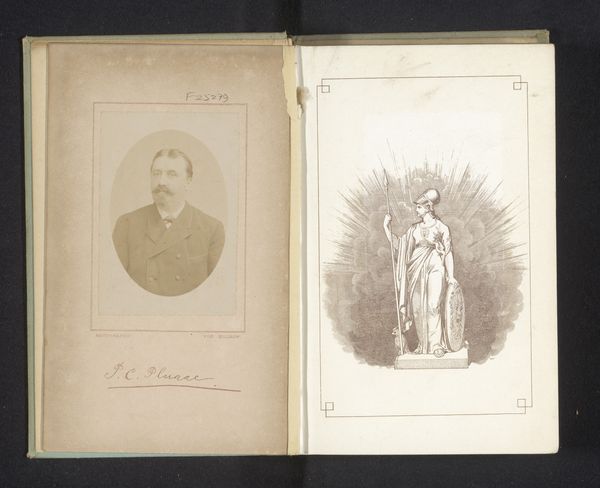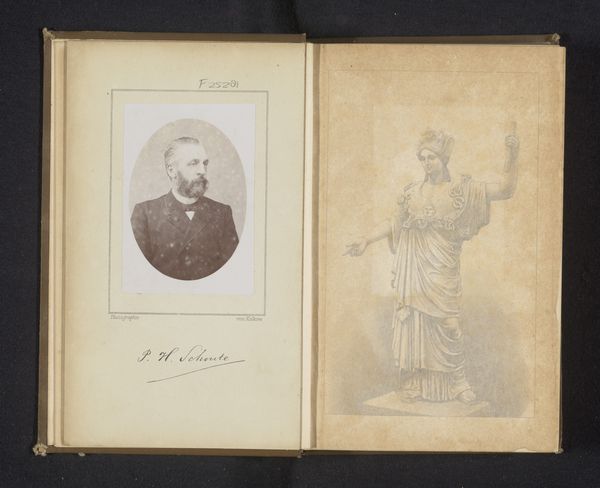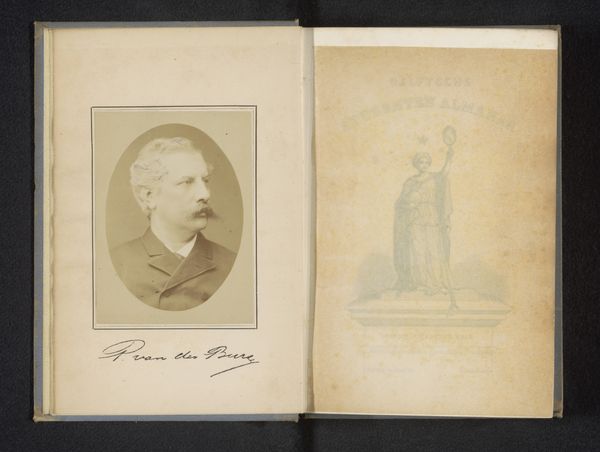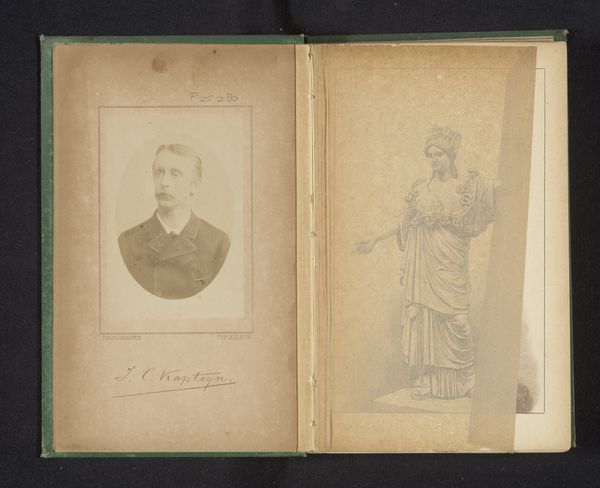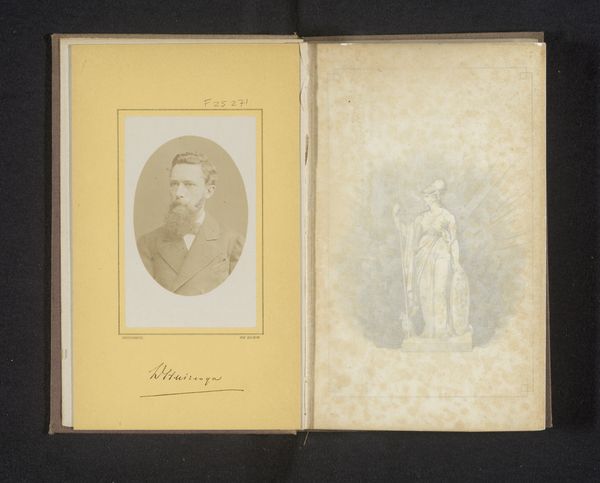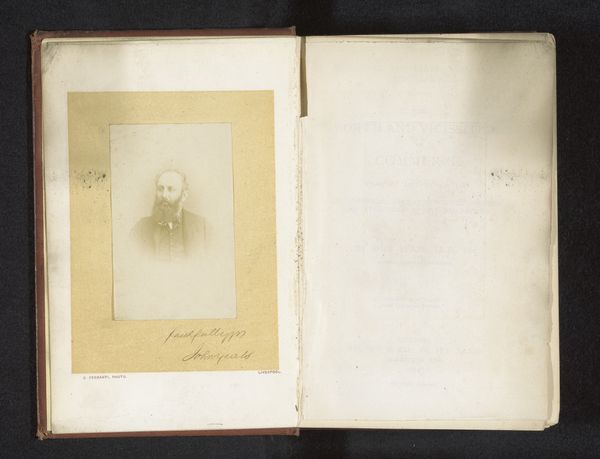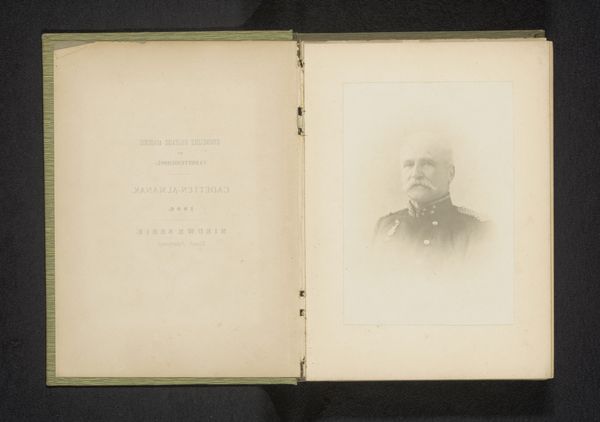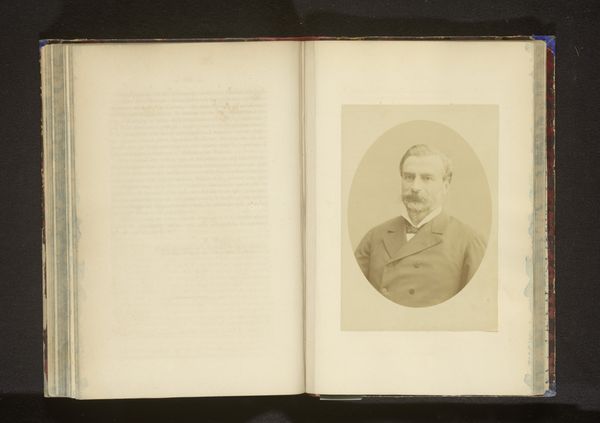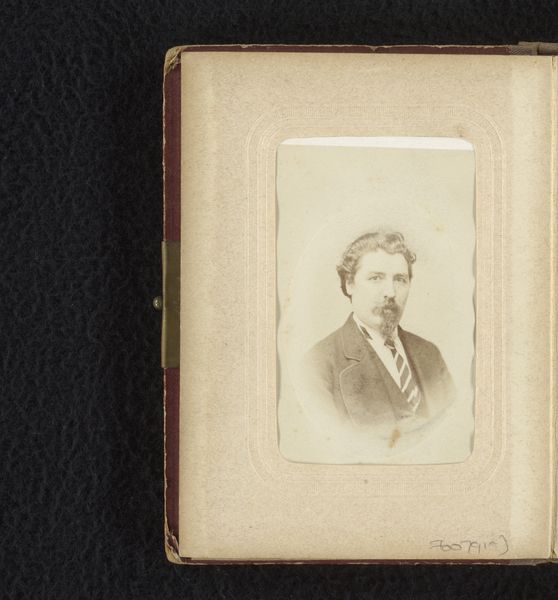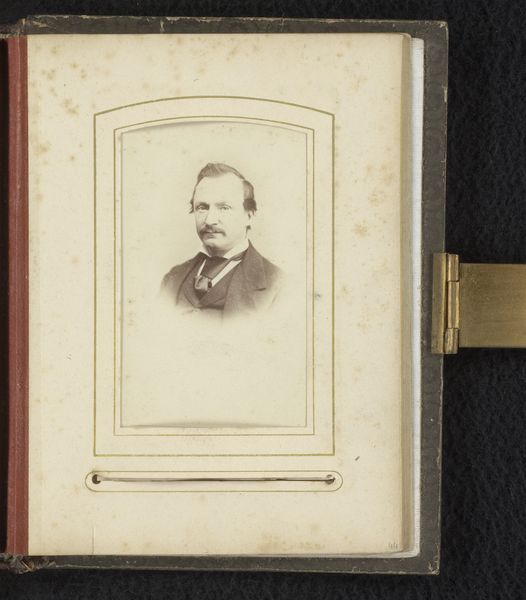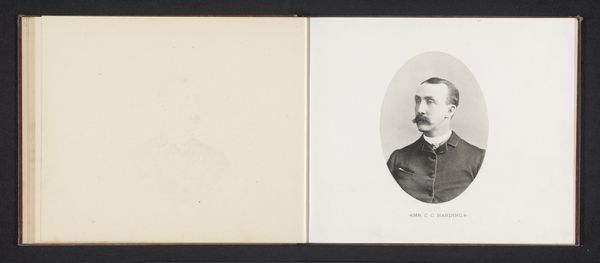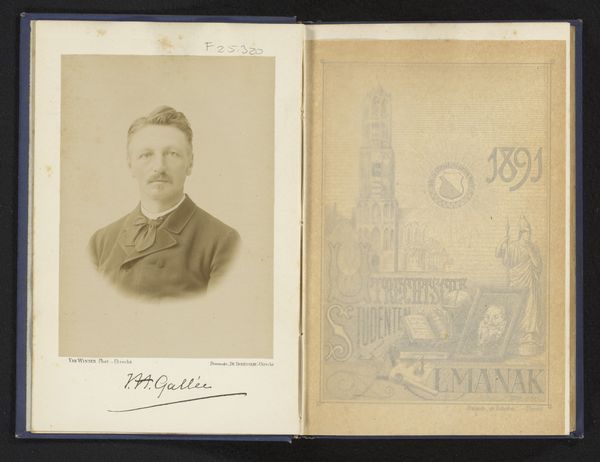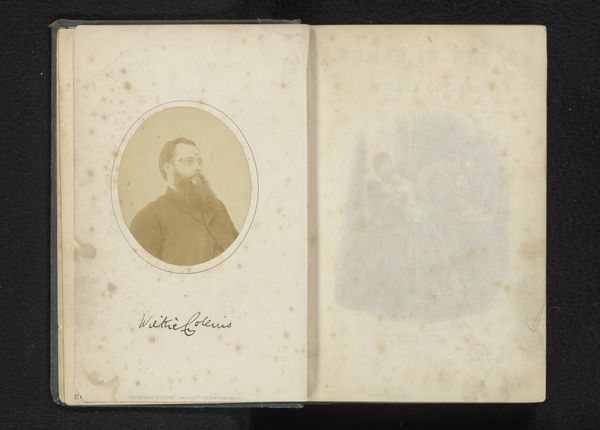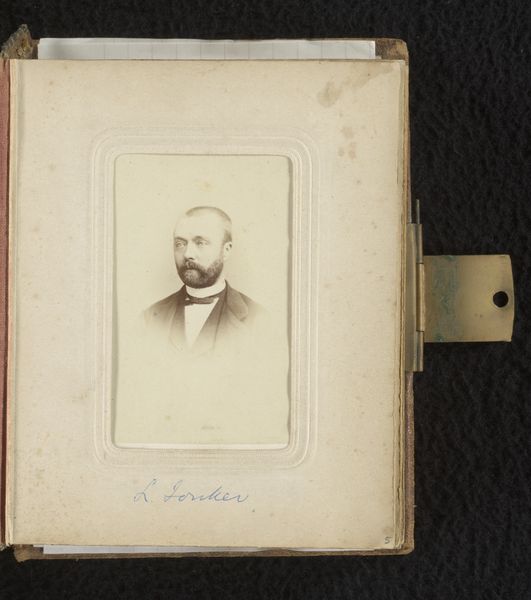
Portret van Frederik Jacob van den Ham, hoogleraar letteren en wijsbegeerte in Groningen en rector magnificus van 1887 tot 1888 before 1888
0:00
0:00
friedrichjuliusvonkolkow
Rijksmuseum
print, photography, albumen-print
#
portrait
# print
#
photography
#
history-painting
#
academic-art
#
albumen-print
Dimensions: height 96 mm, width 64 mm
Copyright: Rijks Museum: Open Domain
This photograph of Frederik Jacob van den Ham was taken by Friedrich Julius von Kolkow in the late 19th century. It’s a small image, likely an albumen print, a popular photographic process at the time, known for its fine detail and warm sepia tones. This technique involved coating paper with egg white – albumen – before applying a light-sensitive silver solution. The resulting prints have a distinctive, almost ethereal quality due to the translucent nature of the albumen layer. Mass production of albumen paper made photography more accessible, yet still required considerable skill. The photograph captures van den Ham in a formal pose, emphasizing his status as a professor. The choice of photography itself reflects the growing importance of visual representation in documenting and disseminating knowledge. The print would have been glued into an album, as a signifier of social status and familial bonds. Consider the layers of labor involved: from the photographer’s expertise to the industrial production of photographic materials. This image reminds us that even seemingly simple portraits are products of complex social and economic forces.
Comments
No comments
Be the first to comment and join the conversation on the ultimate creative platform.
